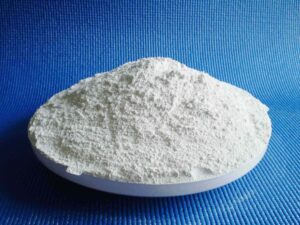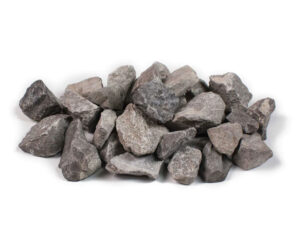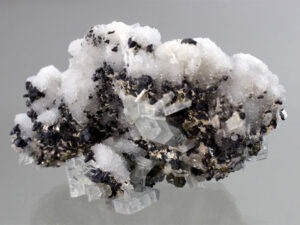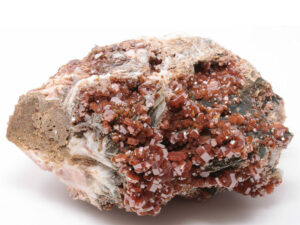Kaolin, a naturally occurring clay mineral, holds a special place in various industries due to its exceptional properties. From cosmetics to paper production, this versatile mineral plays a vital role in delivering high-quality products. In this article, we will delve into the world of kaolin suppliers, exploring its sources, applications, and the significant impact it has on diverse sectors.
What is Kaolin?
Kaolin, also known as china clay, is a soft white clay mineral that originates from the decomposition of feldspar. Its name is derived from the Chinese term “Gaoling,” meaning “high ridge,” as it was first discovered in China’s Jiangxi Province. Composed of mainly kaolinite, a hydrous aluminum silicate, this mineral is renowned for its excellent whiteness, fine particle size, and non-abrasive nature.
Read More: Kaolin
The Geology of Kaolin Deposits
Kaolin deposits are formed through the weathering of rocks, particularly feldspar-rich ones like granite. Over thousands of years, the exposure to water and various minerals breaks down the feldspar, leading to the creation of kaolin deposits. These deposits can be found in abundance across the globe, with significant sources in China, the United States, Brazil, the United Kingdom, Germany, and many other countries.
Types of Kaolin
Depending on the geological conditions and the level of refinement, kaolin exists in various grades, each suitable for specific applications. The primary types include:
Hydrous Kaolin
Hydrous kaolin retains some moisture content and is ideal for applications requiring plasticity, such as ceramics and paper production.
Read More: UREA
Calcined Kaolin
Calcined kaolin refers to the heat-treated version, which enhances certain properties and is commonly used in the production of rubber, plastics, and paints.
Mining and Extraction Proces
The mining process of kaolin varies depending on the location and the depth of the deposit. In general, it involves the use of heavy machinery to extract the raw material. Once mined, the ore undergoes various processes such as crushing, drying, and pulverizing to obtain the desired particle size and purity.
The Significance of Kaolin Supplier
Kaolin suppliers play a pivotal role in bridging the gap between manufacturers and end-users. They ensure a steady supply of high-quality kaolin, tailored to meet the diverse needs of different industries. Their expertise in mining, processing, and logistics ensures a smooth flow of this valuable mineral to its various applications.
Kaolin in the Paper Industry
The paper industry is one of the largest consumers of kaolin. Due to its fine particle size and smooth texture, kaolin is used as a coating material to enhance the paper’s printability and brightness. It also improves the opacity and ink receptivity of the paper, making it an essential component in the production of high-quality printing and writing paper.
Kaolin in Ceramics and Pottery
In the ceramics and pottery industry, kaolin serves as a critical ingredient in the production of porcelain and fine china. Its high plasticity and low shrinkage during firing make it an ideal material for shaping intricate and delicate ceramic items.
Kaolin in Cosmetics and Skincare
Kaolin’s natural absorbent properties and gentle nature make it a popular ingredient in cosmetics and skincare products. From facial masks to body powders, kaolin helps to cleanse, exfoliate, and soothe the skin without causing irritation.
Read More: Bentonite
Kaolin in Pharmaceuticals
The pharmaceutical industry utilizes kaolin in various medicinal formulations, particularly for its adsorbent qualities. It is commonly used to treat diarrhea and other gastrointestinal issues.
Kaolin in Rubber and Plastics
In the rubber and plastics industry, calcined kaolin is preferred for its reinforcement properties. It enhances the strength, durability, and overall performance of rubber and plastic products.
Kaolin in Paints and Coatings
Kaolin is a key component in the production of paints and coatings due to its ability to improve opacity, stability, and adhesion. It also serves as a cost-effective extender, reducing the overall demand for expensive pigments.
Read More: wikipedia
Kaolin in Agriculture
The agricultural sector benefits from kaolin’s unique properties as well. It is used as a natural pesticide to protect crops from pests and insects. Moreover, its application on fruits can extend their shelf life by reducing water loss and controlling fungal growth.
Kaolin in Water Treatment
Kaolin plays a crucial role in water treatment processes, especially in removing impurities and contaminants. Its adsorbent nature helps in the purification of drinking water and industrial wastewater.
Read More: Silica
Environmental Impact and Sustainability
The mining and processing of kaolin can have an impact on the environment. Sustainable practices and responsible mining techniques are essential to minimize the ecological footprint and preserve natural resources.
Future Prospects for Kaolin
As technology and research advance, new applications and uses for kaolin are likely to emerge. Its versatility and environmentally friendly nature position kaolin as a promising mineral for a sustainable future.
Conclusion
Kaolin, the remarkable clay mineral, continues to captivate industries worldwide with its exceptional properties. From enhancing the printability of paper to improving the quality of ceramics and skincare products, kaolin plays a vital role in diverse applications. With responsible mining practices and a focus on sustainability, kaolin suppliers are paving the way for a brighter future. Embracing this extraordinary mineral, various industries are set to flourish while contributing to a greener and more innovative world.
FAQs
Is kaolin harmful to the environment?
While kaolin itself is not harmful to the environment, the mining and processing operations can have ecological impacts. However, with responsible practices and sustainable approaches, these impacts can be minimized.
Can I use kaolin clay on sensitive skin?
Yes, kaolin clay is known for its gentle nature and is suitable for sensitive skin types. It can help absorb excess oil and impurities without causing irritation.
Which industries use calcined kaolin?
Calcined kaolin finds applications in various industries, including rubber, plastics, paints, and coatings, due to its enhanced properties.
What makes kaolin ideal for water treatment?
Kaolin’s adsorbent properties make it effective in removing impurities and contaminants from water, making it suitable for water treatment processes.
Can kaolin be used in agricultural practices?
Yes, kaolin is used in agriculture as a natural pesticide and as a way to extend the shelf life of fruits by reducing water loss and controlling fungal growth.










